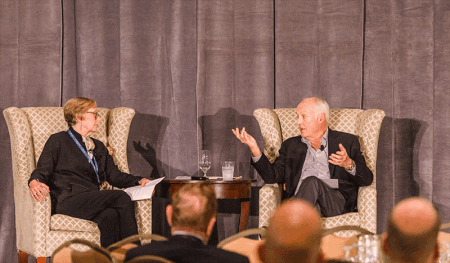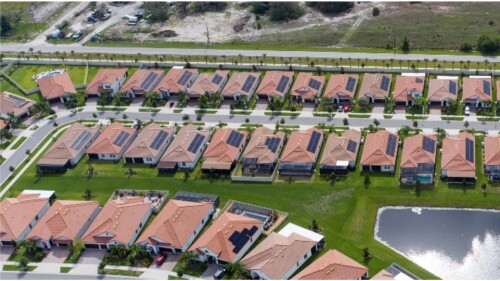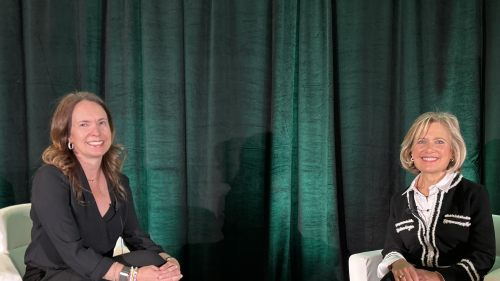In 2018, Los Angeles-based real estate firm LOWE, formerly Lowe Enterprises, together with partner Geolo Capital, sold its hotel operating subsidiary Two Roads Hospitality to Hyatt Hotels for $480 million. It was a price that surprised the hospitality world and a big step for the Los Angeles–based company, which had started from nothing 46 years before.
That kind of exit was not part of some original projection, said Robert “Bob” J. Lowe Sr., the company’s founder and a ULI Foundation Governor, speaking at a ULI event on Kiawah Island, South Carolina, in mid-November. Instead, he explained, he and his colleagues were simply careful to take advantage of possibilities as they arose.
“If I’d told you 47 years agothat I had a great plan, I’d have been lying. But I had a commitment to some strategicissues, and we were very opportunistic along the way,” said Lowe. “You have tohave a strategy and goals, but be alert to opportunities.”
Lowe said he was alwaysattracted to real estate and the innovation it requires. After graduating fromStanford Business School in 1964, he worked for a few development companies andthen headed out on his own in 1972. A former boss said he’d invest $100,000, soLowe and his partners scraped together some funding and got into the resortcondominium business, building units in Palm Desert, California, and downtownAspen, Colorado.
But in 1974 recession struck,and the company needed to diversify. After looking around, it moved into thebusiness of managing gyms and other workout centers—something that was justbecoming popular—and redeveloping condos.
The latter turned out to beextremely beneficial to the company. After redeveloping the units, “we werewondering who’d manage the condos on behalf of their owners,” remembered Lowe.“So we formed a company to do that ourselves.” Forty-five years later, thecompany is still doing it, and is now one of the largest condo propertymanagement firms in the United States.
Diversifying like that was,indeed, part of a bigger plan. Lowe himself wanted to engage in a number ofbusiness areas so that the company would have predictable revenue streamscoming from management activities, and some capital gains ideally flowing frominvestments.
Today, the company says that ithas developed, managed, or acquired over $28 billion of real estate assetsnationally. Development has been a strong theme throughout Lowe’s history; overthe decades, the firm has worked in urban and resort areas around the country,often returning repeatedly to familiar markets.
For example, Lowe visitedSouth Carolina in 1990. He was considering investing in the Isle of Palms, abarrier island near Charleston, but Hurricane Hugo had decimated the region theyear before and it was not clear if committing to the area made any sense. “Butthen we saw historic Charleston,” he remembered. “I said, this is a place wherewe should be in business.” Within a few years, the company had acquired andrenovated Wild Dunes, a resort on the Isle of Palms.
Fast-forward 27 years. In2017, Lowe returned to Charleston’s booming real estate market and purchased awaterfront property for $38 million. The site, formerly occupied by the South CarolinaState Ports Authority, will be a full-service, 225-room hotel, the first on thewaterfront. At the same time, the Wild Dunes resort—which has been upgradedover time and is now a 1,600-acre (647 ha) beachfront complex—will gain a150-room hotel.
Lowe Enterprises is alsoworking on a $300 million project in Culver City, California. Sitting on 6.5acres (2.6 ha) directly adjacent to a new light-rail line station, the projectis under construction and will include 240,000 square feet (22,300 sq m) ofoffices, 200 apartments, 50,000 square feet (4,600 sq m) of retail andrestaurant space, a hotel, and two acres (0.8 ha) of public green space. HBOannounced earlier this year that it will lease office space in the complex,which is slated for completion next year.
These days, Lowe’s company hasundergone something of a shift. The sale of Two Roads Hospitality—a globaloperator of 85 boutique hotels, resorts, and vacation residences that was theresult of a 2016 merger with Geolo Capital—was not initially planned. “We hadno intention of selling it; we’d never sold any of our operating businesses,”explained Lowe. But it was one of those opportunities that could not beignored. Two Roads got an unsolicited offer that far exceeded its worth; as aresult, Lowe hired someone to put out feelers for other potential buyers. Inthe end, Hyatt made the best offer: $480 million at the time of purchase, plusanother possible $120 million later, depending on terms determined after closing.
Now, the company has somecash on hand that is allowing it to watch for new opportunities. That mayinclude investing in distressed properties like old malls and other retailspaces that have been overbuilt.
But another result of thesale was that Lowe, the parent firm, suddenly went from being a company of some17,000 employees to one that employed only about 3,500 people. Perhapsunsurprisingly, Lowe’s leaders quickly began a new management company. “We’reback in the hospitality management business,” said Lowe. The company launchedCoralTree Hospitality Group at the start of 2019, beginning with a portfolio of17 hotels and resorts around the country.
“We’ll be more picky now,” added Lowe, who has handed the company’s reins over to his two sons. He said he is not worried about a serious downturn in the next year, but there are some concerning signs on the horizon. “We’re being cautious—we’re trying to capitalize our projects with financial sources that can weather a downturn with us,” he explained.





